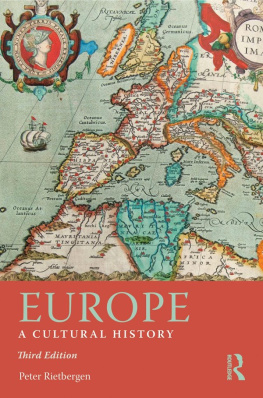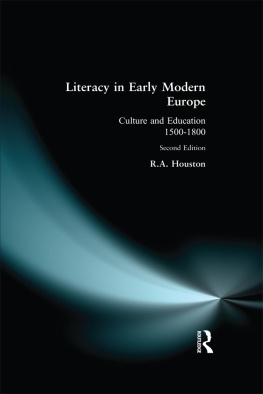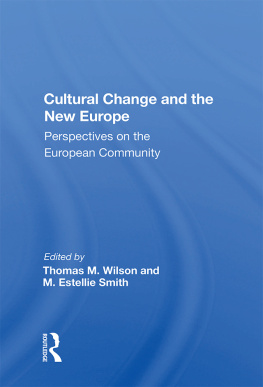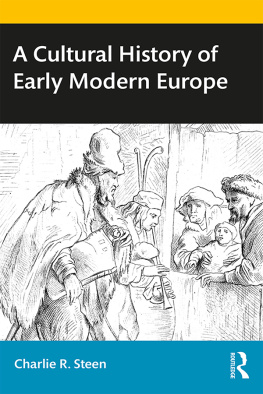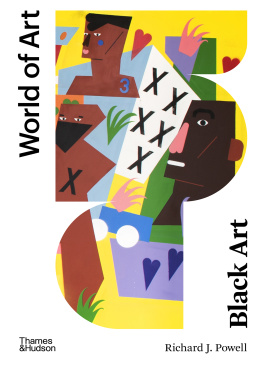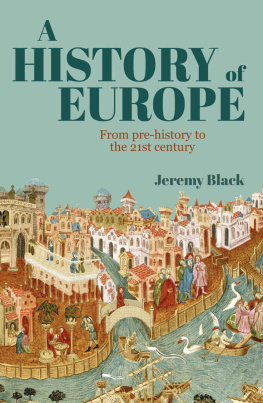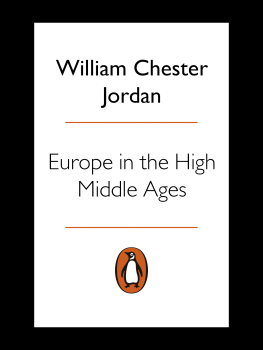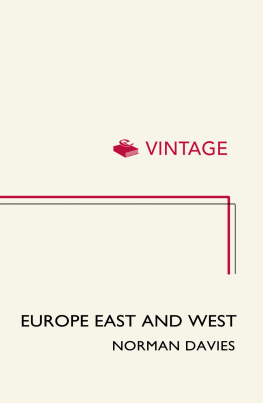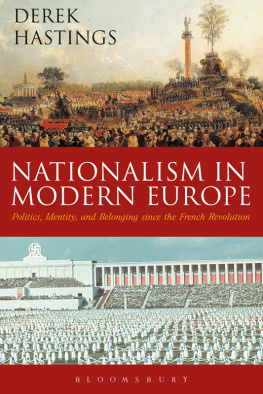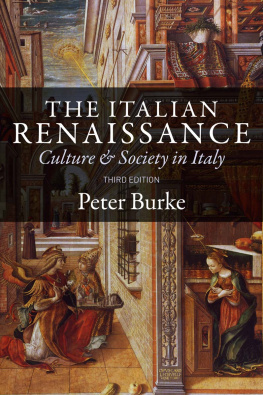Europe: A Cultural History
This third edition of Peter Rietbergens highly acclaimed Europe: A Cultural History provides a major and original contribution to the study of Europe. From ancient Babylonian law codes to Pope Urbans call to crusade in 1095, and from Michelangelo on Italian art in 1538 to Stings songs in the late twentieth century, the expressions of the culture that has developed in Europe are diverse and wide-ranging. This text expertly connects these themes in a thorough and yet highly readable style.
Presented chronologically, Europe: A Cultural History examines the many cultural building blocks of Europe, stressing their importance in the formation of the continents ever-changing cultural identities. Starting with the beginnings of agricultural society and ending with the mass culture of the early twenty-first century, the book uses literature, art, science, technology and music to examine Europes cultural history in terms of continuity and change. Rietbergen looks at how societies developed new ways of surviving, believing, consuming and communicating throughout the period. His book is distinctive in paying particular attention to the ways early Europe has been formed through the impact of a variety of cultures, from Celtic and German to Greek and Roman. The role of Christianity is stressed, but as a contested variable, as are the influences from, for example, Asia in the early modern period and from American culture and Islamic immigrants in more recent times.
As anxieties over Europes future mount, this third edition has been thoroughly revised and updated. Also new for this edition are 17 short essays that highlight cultural phenomena said to be characteristic of Europe, such as social solidarity, capitalism and democracy. With a wide selection of illustrations, maps, excerpts from primary sources and even lyrics from contemporary songs to support the arguments, this book serves the general reader as well as students of the history and culture of Europe.
Peter Rietbergen is Professor of Cultural History at Radboud University Nijmegen in the Netherlands. He is author of 13 monographs, including the best-selling Short History of the Netherlands (2014), which has also been translated into German, and of Rome and the World the World in Rome: The Politics of International Culture, 18612011 (2012).
Europe
A Cultural History
Third Edition
Peter Rietbergen

First published 1998
by Routledge
Second edition published 2006
by Routledge
This third edition published 2015
by Routledge
2 Park Square, Milton Park, Abingdon, Oxon OX14 4RN
and by Routledge
711 Third Avenue, New York, NY 10017
Routledge is an imprint of the Taylor & Francis Group, an informa business
1998, 2006, 2015 Peter Rietbergen
The right of Peter Rietbergen to be identified as author of this work has been asserted by him in accordance with sections 77 and 78 of the Copyright, Designs and Patents Act 1988.
All rights reserved. No part of this book may be reprinted or reproduced or utilised in any form or by any electronic, mechanical, or other means, now known or hereafter invented, including photocopying and recording, or in any information storage or retrieval system, without permission in writing from the publishers.
Trademark notice: Product or corporate names may be trademarks or registered trademarks, and are used only for identification and explanation without intent to infringe.
British Library Cataloguing-in-Publication Data
A catalogue record for this book is available from the British Library
Library of Congress Cataloging-in-Publication Data
Rietbergen, P. J. A. N.
Europe : a cultural history / Peter Rietbergen. Third, revised and augmented edition.
pages cm
Includes bibliographical references and index.
1. EuropeHistory. 2. EuropeCivilization. I. Title.
D20.R42 2014
940dc23
2014023003
ISBN: 9780415663571 (hbk)
ISBN: 9780415663618 (pbk)
ISBN: 9781315748511 (ebk)
Typeset in Bembo
by Keystroke, Station Road, Codsall, Wolverhampton
Contents
PART I
Continuity and change: new ways of surviving
PART III
Continuity and change: new ways of looking at man and the world
PART IV
Continuity and change: new forms of consumption and communication
Over the past 15 years, people have responded variously to the first (1998) and the revised, second edition (2006) of this book. Whereas there have been many encouraging and even laudatory reactions and reviews, some critics have suggested that my interpretation of Europe as a culture was, perhaps, a bit idiosyncratic. But how could it be otherwise? Or, rather: why do I, why do we, need the past anyway?
The original meaning of the Greek verb historein was to inquire. Hence, a historia was a text usually a narrative presenting knowledge about people, events and things acquired by investigation. Indeed, even nowadays, both in French and in German, the terms histoire and Geschichte may still refer to a tale of something that happened only a minute ago. Only in the fifteenth century did histoire and history also, and primarily, become the narrative of knowledge acquired of people, events and things past.
Reversing a famous warning often but wrongly attributed to Sigmund Freud (18561939), one may argue that a person who is not interested in his own past and, indeed, in the past will be a good-for-nothing, because, to paraphrase Robin
But why should we try to know something about the history of such a huge and, to many, ill-defined space as is Europe? One may consider the very pertinent remark made in the 1980s by the British politician George Walden, who told his readers that: a country losing touch with its own history is like an old man losing his glasses,
Yet, obviously, Europe is not a given entity with fixed attributes, but essentially a changing concept and, hence, an ongoing realization as well as an interpretation. A geographical map and the many assumptions and choices behind it are an interpretation, because people thus describe as well as circumscribe the space they inhabit, perhaps even ascribing to it a shared identity. A community is an interpretation, because people attribute to the sociocultural group they feel they belong to certain characteristics, which supposedly create cohesion and identity. All culture is interpretation, since it is the tangible, readable and visible form people give to their thoughts about the nature that nurtures them, about themselves and about the people around them. All of these spaces, bodies, communities, cultures are essentially subject to the dynamic of time, to the alteration that comes with its relentless passing.
should be understood as meaning that man, who creates history, is, himself, a creature of history. Writing about the past, he is always doing so in the present, wherein everything that can be written about already is history, since even things which happened an infinitesimal amount of time ago are past, and cannot but be interpreted as such.
Webers plea for what we might term self-reflexivity forgotten what the German master had written and blithely re-invented the wheel.
Following Webers exhortation, I will not disguise the many realities both challenges and restrictions of my standing-place, as he called it. I, the person who has authored this book, am a man, born in Europe at the beginning of the seemingly secure second half of the twentieth century, but writing in the crisis-filled first decades of the twenty-first century, a scholar moreover politically inclined towards socio-democracy, and with a decided interest in the continuing complex role(s) of religion(s) in culture and in the interaction between Europe and other world cultures. Nor should I myself forget or forget to mention to my readers that I am writing as a citizen of a nation, the Dutch one, the larger part of which for several decades professed itself to be pro-European, though, in recent years, many of my compatriots have started to feel doubts about that erstwhile stance. Et cetera.
Next page
